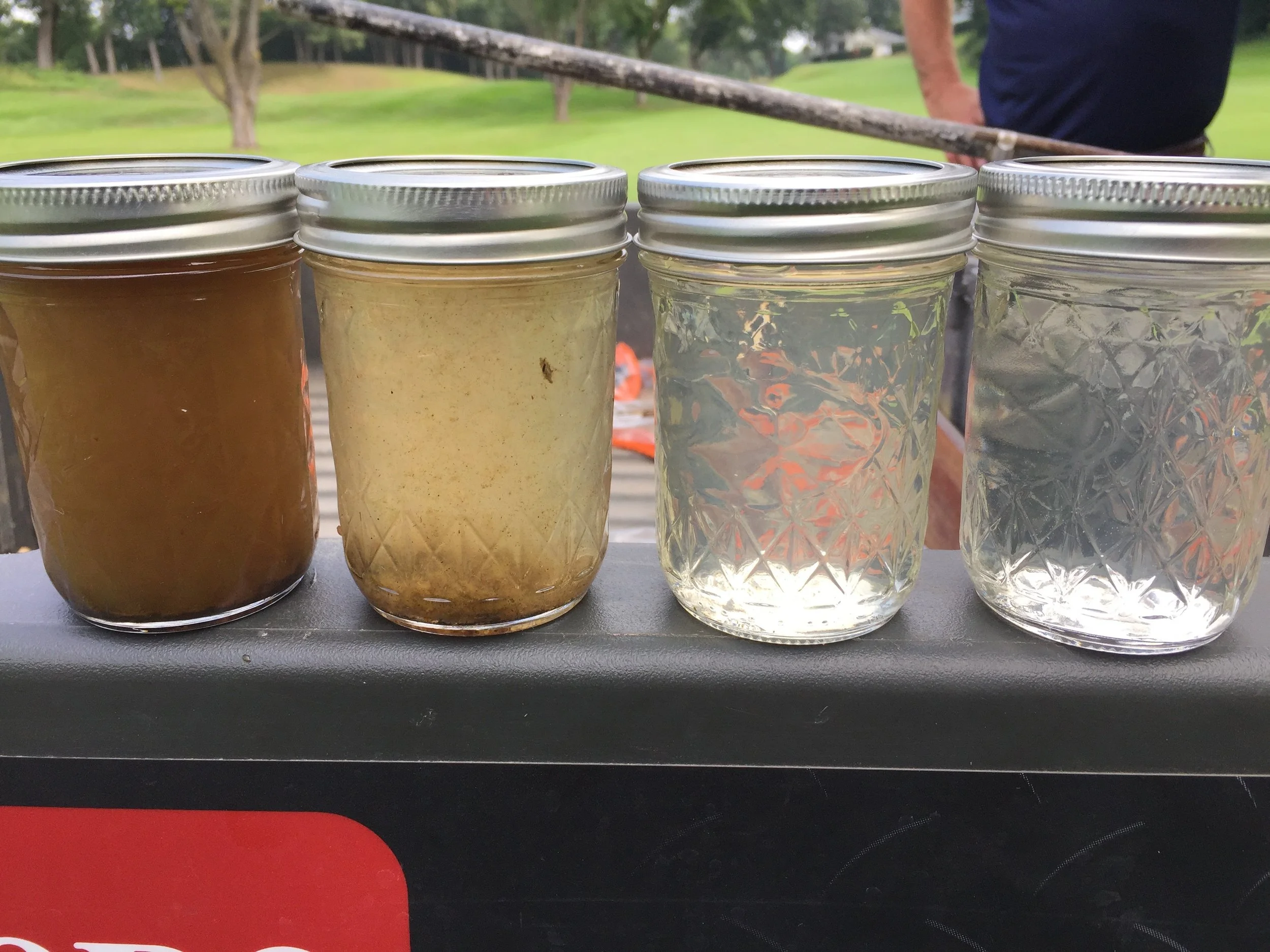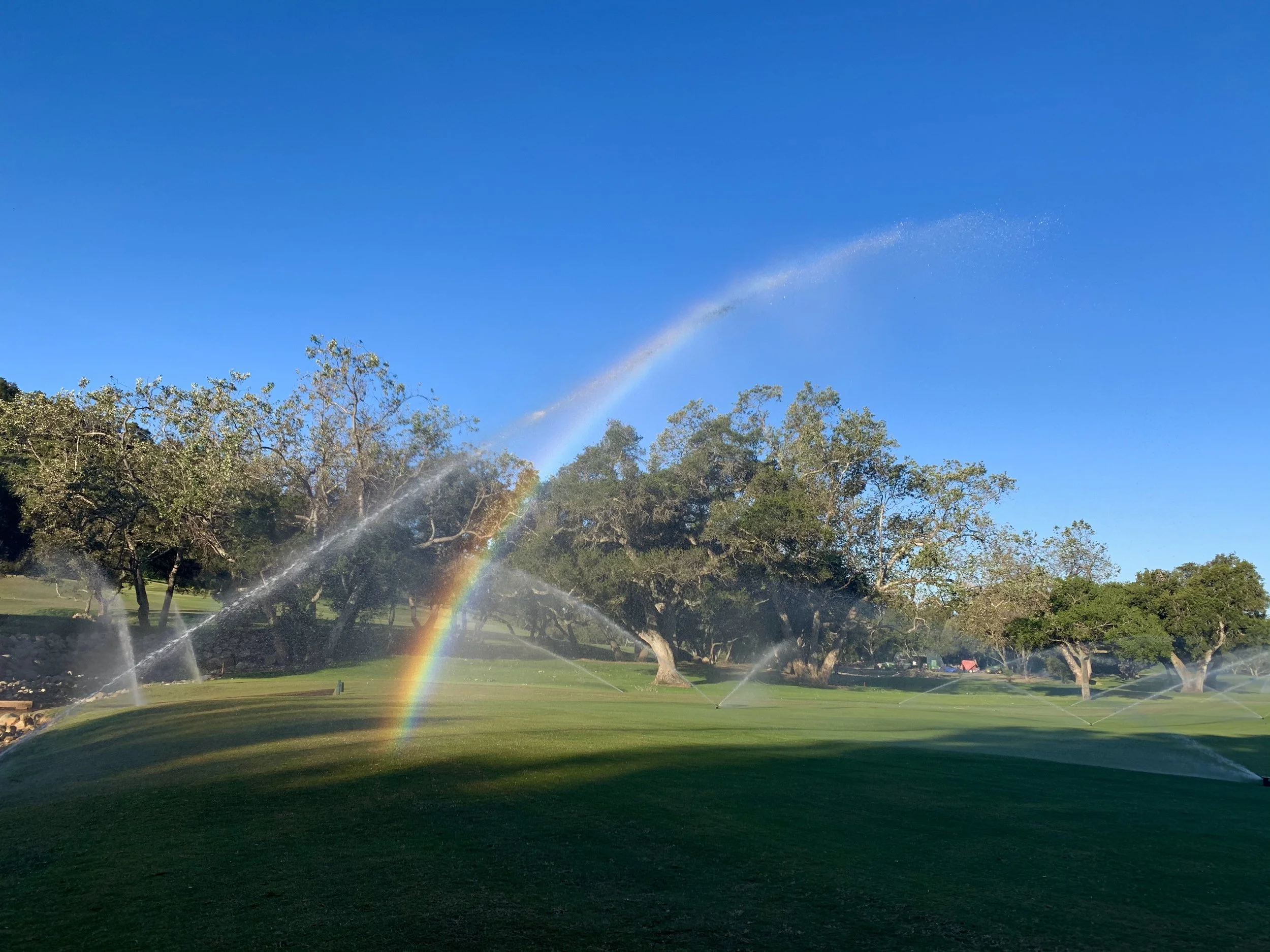Water
A sustainable golf course can significantly enhance water efficiency by implementing advanced technologies and responsible practices. Precision irrigation, water catchment and filtration systems, and the use of reclaimed wastewater not only optimize water usage but also position the golf course as a beneficial water filter for the watershed.
-
Utilizing precision irrigation technologies, such as soil moisture sensors and weather-based controllers, allows for targeted and efficient water application. This reduces water waste, optimizes turf health, and ensures that irrigation matches the specific needs of the course.
-
Implementing water catchment systems, such as rainwater harvesting, captures and stores precipitation for later use. Coupled with effective filtration systems, this harvested water can be used for irrigation, reducing reliance on external water sources and minimizing the environmental impact.
-
Treating and reusing reclaimed wastewater for irrigation purposes is a sustainable practice. By redirecting treated wastewater to the golf course, the facility minimizes its demand on freshwater resources, conserving water and contributing to water recycling initiatives.
-
The layout of a golf course, with its extensive green spaces and vegetation, acts as a natural filter for water. As rainwater or runoff passes through the course, vegetation and soil capture pollutants, sediments, and nutrients, resulting in cleaner water exiting the golf course.
-
Integrating effective stormwater management practices, such as swales and retention ponds, helps control and filter runoff. These features detain water, allowing sediments to settle and facilitating natural filtration processes before water is released back into the watershed.
-
Engaging with the local community through educational programs raises awareness about the positive impact of the golf course on water quality. Understanding the dual role of the course as both a user and purifier of water fosters community support and participation in water conservation efforts.
In summary, a sustainable golf course, through precision irrigation, water catchment, and filtration practices, not only maximizes water efficiency but also acts as a responsible steward of water resources. By incorporating these strategies, the golf course transforms into a water filter, enhancing the quality of water that flows back into the watershed and contributing to broader environmental conservation goals.
Read More.




















